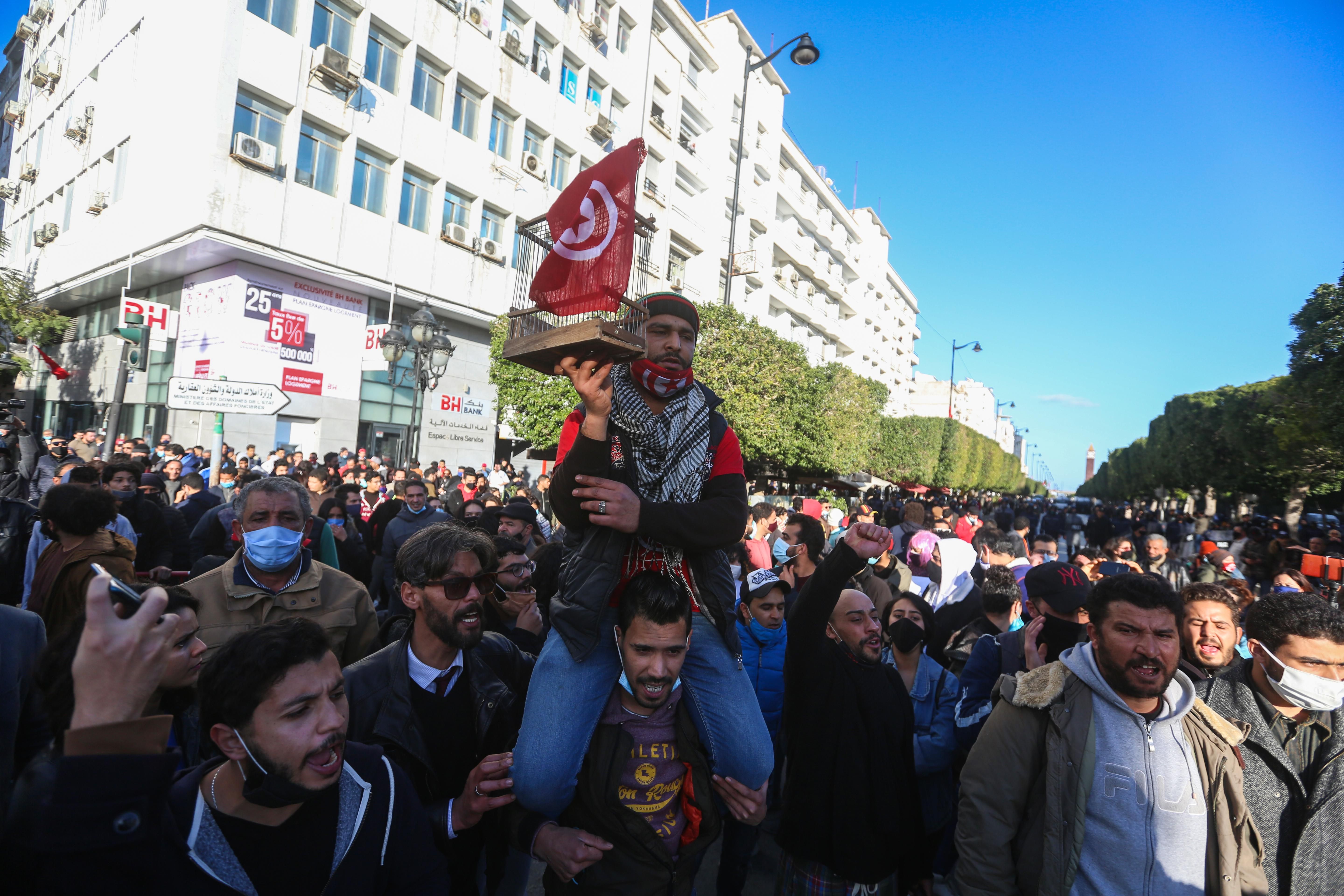What We’re Watching: Tunisian protests, Navalny vs Putin, Italian government survives
Tunisians demand change: Marking ten years since Tunisians sparked the Arab Spring by taking to the streets to demand the ouster of longtime autocrat Zine el-Abidine Ben Ali, a fresh generation is now protesting the country's dire economic and social crisis. Security forces responded with a heavy hand, using tear gas and water cannons to disperse protesters who hurled gas bombs, and over 600 demonstrators were arrested. As Tunisia descends further into economic ruin, with youth unemployment hovering at 30 percent, protesters demand a new election (they have not been placated by Prime Minister Hichem Mechichi's recent attempt at a government reshuffle.) Demonstrators say that the political class has failed to follow through on pledges of reform made during the 2011 revolution: since then, living standards for most Tunisians have plummeted while poverty has soared. While Tunisia is the only state involved in the Arab Spring that became a democracy, the political elite has largely failed to root out corruption and inequality. Last year, the government responded to similar protests by creating more public sector jobs, but options are limited now due to pandemic-fueled economic stagnation.
Navalny back in Russia: Top Russian dissident Alexey Navalny was arrested on Monday upon his return to Moscow from Germany, where he was treated after being poisoned in Russia last year. What happens now? The Kremlin must tread carefully. On the one hand, Navalny — an outspoken nationalist and anti-corruption crusader — is a perennial thorn in Putin's side, and enjoys some real support in Russia's big cities. On the other hand, keeping the fearless Navalny locked up could backfire, fueling a fresh protest movement in the run-up to this fall's legislative vote — something the Kremlin is desperate to avoid. The last time Putin — who unlike with other opposition figures, famously never refers to Navalny by his name — headed into Duma (parliament) elections with approval ratings as low as they are now was in 2011, when Navalny himself led hundreds of thousands of protesters angry about election fraud and Putin's tight grip on power. (Also, Putin certainly won't love Navalny's revelations about the president's palatial private strip club). An early test of Navalny's ability to rally crowds will come on January 23, when he called on Russians to stage mass demonstrations "for your future." Before that, get ready for likely fresh sanctions on Russia from the EU and the US.
Conte hangs on in Italy: Italy's fragile coalition government narrowly survived a confidence vote in the Senate on Tuesday, after several senators — including independents and those from the junior party that forced the cabinet's collapse last week— decided to abstain. This will allow political outsider Giuseppe Conte to remain as prime minister, but weakens his power at the worst possible time: Italy is in the midst of a national emergency due to a severe economic crisis and an upsurge in COVID cases after emerging as one of the world's hardest-hit countries back in the spring. The current political crisis was spurred by opposition to the PM's refusal to let Italy take on even more debt to get the economy back on track, and his insistence that technocrats — not politicians — decide how EU pandemic relief money is spent. In the coming weeks, we'll be watching to see if Conte succeeds in lobbying moderate parties to agree to his spending plans, or finally steps down if his minority government can't get key legislation passed. The far-right Lega party, currently leading in election polls, is surely hoping for the latter.